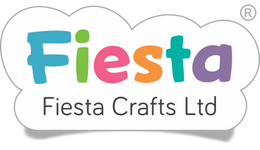
Why Are Toys Good For Learning?
Toys play a crucial role in a child's development and can be highly effective tools for learning. Here are several reasons why toys are beneficial for learning:
- Engaging and Interactive: Toys are designed to captivate a child's attention and stimulate their curiosity. They often incorporate various colours, textures, sounds, and movements, encouraging children to explore and interact with them. This engagement promotes active learning and helps children develop their cognitive and sensory skills.
- Hands-on Learning: Many toys offer hands-on experiences, allowing children to manipulate objects, solve problems, and experiment with cause and effect. Building blocks, puzzles, and science kits, for example, enable children to learn through trial and error, enhancing their problem-solving abilities, critical thinking skills, and spatial awareness.
- Imagination and Creativity: Toys provide an outlet for children to express their imagination and creativity. Dolls, action figures, and pretend play sets, for instance, allow children to engage in role-playing scenarios, which aids in language development, social skills, and emotional expression. Art supplies, such as crayons and clay, promote creativity, fine motor skills, and self-expression.
- Language Development: Many toys are designed to facilitate language development in children. Board games, storybooks, and educational toys often include words, letters, and numbers, introducing and reinforcing language skills. Playing with these toys encourages vocabulary expansion, reading comprehension, and communication abilities.
- Social Skills and Cooperation: Toys can foster social interaction and cooperation among children. Board games, team-building toys, and collaborative construction sets require communication, sharing, and problem-solving with others. Through these activities, children learn important social skills like turn-taking, negotiation, empathy, and teamwork.
- Conceptual Understanding: Educational toys often focus on specific subjects or concepts, such as math, science, or geography. These toys provide a hands-on approach to learning abstract ideas, making them more concrete and easier to grasp. They can facilitate the development of foundational knowledge and skills in various domains.
- Emotional Development: Toys can aid in emotional development by providing comfort, companionship, and opportunities for self-expression. Stuffed animals, dolls, and puppets, for example, allow children to explore emotions, develop empathy, and practice nurturing behaviour. This emotional engagement promotes self-awareness and emotional intelligence.
- Motor Skills Development: Many toys promote the development of fine and gross motor skills. Building sets, art supplies, and puzzles require precise hand-eye coordination and dexterity. Physical toys like balls, bikes, and scooters encourage gross motor skills, balance, and coordination. The use of these toys supports the development of both fine and gross motor skills.
In summary, toys offer a wide range of benefits for learning. They engage children in interactive and hands-on experiences, stimulate imagination and creativity, promote language development, enhance social skills, facilitate conceptual understanding, support emotional development, and foster motor skills. By providing a fun and educational environment, toys play an integral role in a child's overall development and learning journey.
